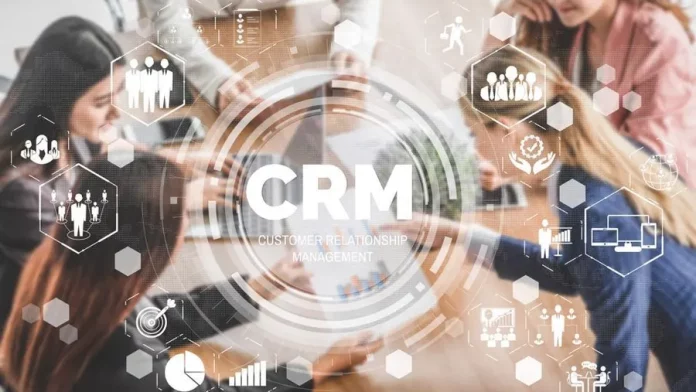
The health industry is a very particular one, dealing with the mental and physical well-being of human beings. It has to operate on a highly regulated basis while adhering to the technological advancements necessary to provide the best care possible. This combination of strict regulations and the need for constant innovations creates a challenging environment for those working in the field.
Fortunately, many solutions have been created to make working in the healthcare industry easier these days. From telemedicine to online prescription services and automated patient record systems, new technologies have greatly improved the efficiency of medical facilities.
One of the most popular solutions used by hospitals, clinics, and other health-related institutions are CRMs (customer relationship management systems). In this post, we will discuss what these are and how they are changing the relationship between healthcare professionals and their patients.
Customer Relationship Management Systems in Healthcare
CRMs are not a new concept, but their use in the healthcare industry has been rapidly increasing in recent years. As technology continues to advance, healthcare professionals look for ways to streamline and simplify the tasks that come with managing patient relationships. CRMs offer a way to centralize patient information and improve the service offered. From appointment tracking and history of medical bills to personalized messaging and analytics, CRMs provide a comprehensive platform to improve how medical facilities operate. Let’s look at the benefits these systems can bring to healthcare organizations.
Why Are CRMs So Important?
As in other industries, customer relationship management systems (CRMs) are crucial in healthcare because they allow the collection, organization, and management of customer-related information more efficiently. Since CRMs can use multiple data sources to create a comprehensive, 360-degree view of each patient, they allow healthcare providers to deliver more personalized care. Utilizing such solutions is a great, modern way to not only streamline administrative tasks, but also improve the overall patient experience.
Measuring and tracking data also comes handy when evaluating the effectiveness of marketing campaigns. Even though healthcare facilities are not businesses in the traditional sense, they can still benefit from understanding their patient demographics and preferences. By utilizing healthcare CRM systems, healthcare facilities can polish their outreach efforts and better see who is missing out on their services.
What’s more, these systems can also help healthcare providers see potential areas for improvement in their services—having an idea about what needs to be fixed or modified can lead to better patient satisfaction and, thus, a better overall outcome for the facility.
CRMs in Healthcare: Benefits and Challenges
There are many advantages that using CRMs in healthcare can bring, such as the aforementioned improvement in patient outreach and service quality. However, implementing such software in medical facilities can also pose challenges.
While leveraging the power of Customer Relationship Management systems is a great way to streamline operations, healthcare providers must be prepared for potential difficulties when introducing and integrating the new solution. CRMs do not pose any threat to a business on their own – they are entirely beneficial. It is the process of adapting to and effectively utilizing it that can feel difficult.
As with any new technology, introducing a healthcare CRM to a facility that has not used such a solution before may require extra effort. For example, training the staff to properly use the system, ensuring that the software is integrated with all the other existing systems, and having a clear plan for data migration are all crucial during the implementation process. Additionally, even choosing the best CRM solution for a specific facility can be difficult.
How to Choose the Best CRM for Your Medical Facility?
The healthcare CRM market is not only saturated with options, but also constantly grows. Every healthcare software development company claims to have the best solutions, but the truth is that what is best depends on what specific needs and goals a facility has. What works great for one, will not necessarily be the best choice for another. Therefore, do not be misled by big promises when picking the proper Customer Relationship Management system for your healthcare organization.
Look for User-Friendly Software
First and foremost, your CRM of choice should be easy to use for everyone who will be involved in the processes it is meant to streamline. Overly complicated systems full of technical jargon may create confusion and lead to unnecessary human errors. Consider the level of technical expertise of your staff and avoid choosing software that would be above their skill level, unless you are planning to offer your employees additional training and support.
Do Not Trust the Cheapest Solutions
Of course, saving money is a great priority for almost any organization, but trying to cut costs on important software can be disastrous and generate more problems in the long run. It is important to not choose the CRM based on its price alone; while there are many great cost-effective solutions, a low price may indicate a lack of necessary features or poor customer support. It is crucial to prioritize user-friendly software that meets the specific (if many) needs of your healthcare organization to ensure the best outcome.
Read the Reviews
Always look for proof that the CRM software you want to purchase is worth the investment. Remember that whatever you are looking for, be it a custom web app, a communication tool, or – like in this case – a healthcare CRM, reviews and user testimonials will help you make an informed decision. In case the reviews are mixed, dig deeper into the specific features that are important to you and see what other users have to say about those specifically. If you can’t find any favorable feedback about the software you are interested in using, it is a clear sign that you should continue your search for a more reliable option.
Wrap-Up: Improving Healthcare with CRM Systems
Whether your facility is a small clinic or a large hospital, it can significantly benefit from introducing a healthcare CRM system into it. With virtually no downsides, implementing a Customer Relationship Management system can potentially improve many aspects of patient care. Streamlining operations and simplifying patient data-related processes will not only be more effective, but will also ultimately lead to better patient outcomes, affecting the well-being of a real person. By investing in a healthcare CRM system, you are investing in the future of healthcare altogether.










